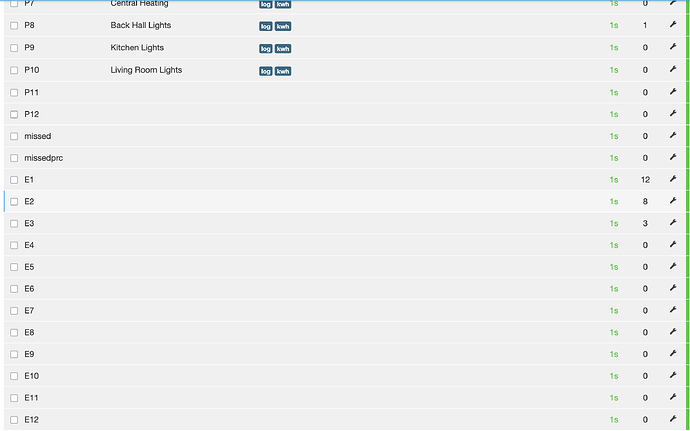Hi all,
I have an EmonPi2 along with 4x EmonTx. The EmonPi is the 12CT variant, however I’ve noticed when initialising the device with the 12CT firmware, the E1-6 and E7-12 are not populating values from the firmware.
When I flash it with the 6CT firmware the E1-6 populate and calculate the kWh as expected, I found another topic - but specific to the EmonTx with the same issue - however, the advice was to move the EmonTx from USB to RF input to the EmonPi, obviously I don’t have that option for the built-in expansion board.
How might I make the EmonPi populate all E1-6 and E7-12 energy attributes from the 12CT firmware?
Thanks!
Ref link to other thread: Tx4 CT6 not sending Energy data
